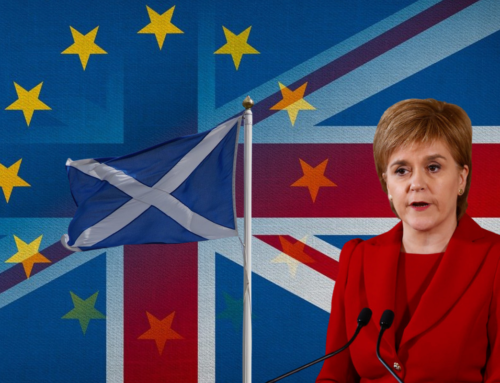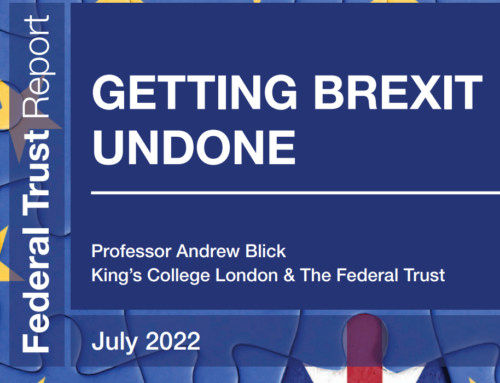This article was first published by Civil Service World.
The Government have very quietly published a grandly title “Declaration On Government Reform”, signed by the Prime Minister and Cabinet Secretary no less. It was apparently agreed at a meeting of the whole Cabinet with all Permanent Secretaries in attendance.
So why the low-key launch, if this is so important? Read it and you can see why.
This is not about reform of Government in any meaningful sense. It’s about the reform of “a Government” – Westminster and Whitehall – and not even all of that.
Reading this document through you could almost miss the fact that the United Kingdom now has four, arguably five, Governments.
The document claims to be in response to the Covid-19 crisis. Yet devolution of powers over health, social care, education, policing, and many other public services has meant that the devolved governments of Scotland, Wales and Northern Ireland have never been more obvious or prominent to everyone in the UK as they have been during Covid.
First Ministers Nicola Sturgeon, Mark Drakeford and (until recently) Arlene Foster have become much more familiar to everyone, and their different policies on Covid-response have appeared on nightly TV news almost every day of over a year. They run governments.
The Declaration lists some of the areas where the ‘public’s priorities’ have to be delivered on in the wake of Covid: housing; police and crime; environmental enhancement; health; education; science; and jobs. Yet all of these are wholly, or substantially, the responsibility of the Scottish, Welsh and Northern Irish governments in their territories. Not that you would know this from the Declaration.
I said the UK has four or, arguably, five governments because one of the confusions with our system is that the Westminster/Whitehall government is really two governments in one. On housing; police and crime; environmental enhancement; health; and education the government of England. On others it is the UK government.
It has some residual UK-wide powers in some of these areas – but anyone who has had their eyes open during the Covid crisis can see that in Scotland, Wales and NI the health and public health aspects of the crisis have been managed by the devolved governments.
On science and jobs Westminster/Whitehall shares responsibility with the devolved governments and it has complete control of a number of important economic levers.
The sub-text in the Declaration is quite clear: devolution was a mistake. It is full of references to ‘Britain’ and ‘all parts of the country’, by which it clearly means the whole UK. It even talks about moving civil service jobs to various parts of England, and throws in Glasgow, Cardiff, Belfast and East Kilbride (all of which already have some UK government jobs or agencies).
There is one other deep confusion throughout the document – it constantly conflates the civil service and wider public services and uses the two terms inter-changeably. The civil service is only about one in ten of public service employees. Very few of the other 90% are controlled directly by Whitehall. They are very, in different ways, at ‘arms-length’, or even further, from direct Ministerial control.
It also ignores the fact that institutional relationships between Ministers and Civil Servants are not the same in Edinburgh, Cardiff, and Belfast as they are in London. A detail, perhaps, but a telling one. This is a London-centric documents throughout.
The document concentrates almost entirely on the relationship between (Whitehall) Civil Servants and their Ministers – as if that is all that matters.
There are few – but very few – new ideas in the Declaration. There is a strong commitment to more diversity, which is welcome. There is a commitment to ‘zero tolerance’ for bullying (except in the Home Office?). There are some interesting ideas about challenging ‘group-think’, the use of ‘Red Teams’, more multi-disciplinary work, and better collaborative working across government and so on.
Even some of this is not entirely new. The New Labour government tried more ‘joined-up’ government through things like its ‘cross cutting reviews’ and, in the English regions, single government offices.
Some ‘new’ reforms go back even further. Trying to keep subject-expert civil servants working in their subject specialisms is hardly new – it was proposed in the Oughton review of ‘career management in 1993.
Similarly creation of a physical campus for civil service leadership training is also re-tread – from 1970 we had one, at Sunningdale, as first the Civil Service College and then the National School of Government – until the Tory-led government shut it in 2012 and sold it off for retirement homes.
Ideas like departmental plans, and targets, and a ‘refreshed delivery unit’ are all straight out of New Labour’s playbook from the early 2000s.
But the biggest weakness by far is the failure to recognise that the UK is a Union of three nations and a bi-national province. And don’t even ask about local government. They don’t even get the cursory mention the devolved governments do. A recognition of multi-level governance this is not.
And although the declaration has supposedly been made in response the Covid-19 crisis, there is little sign any of the obvious problems in governance that occurred during this crisis will be addressed by anything in this document.








Leave A Comment